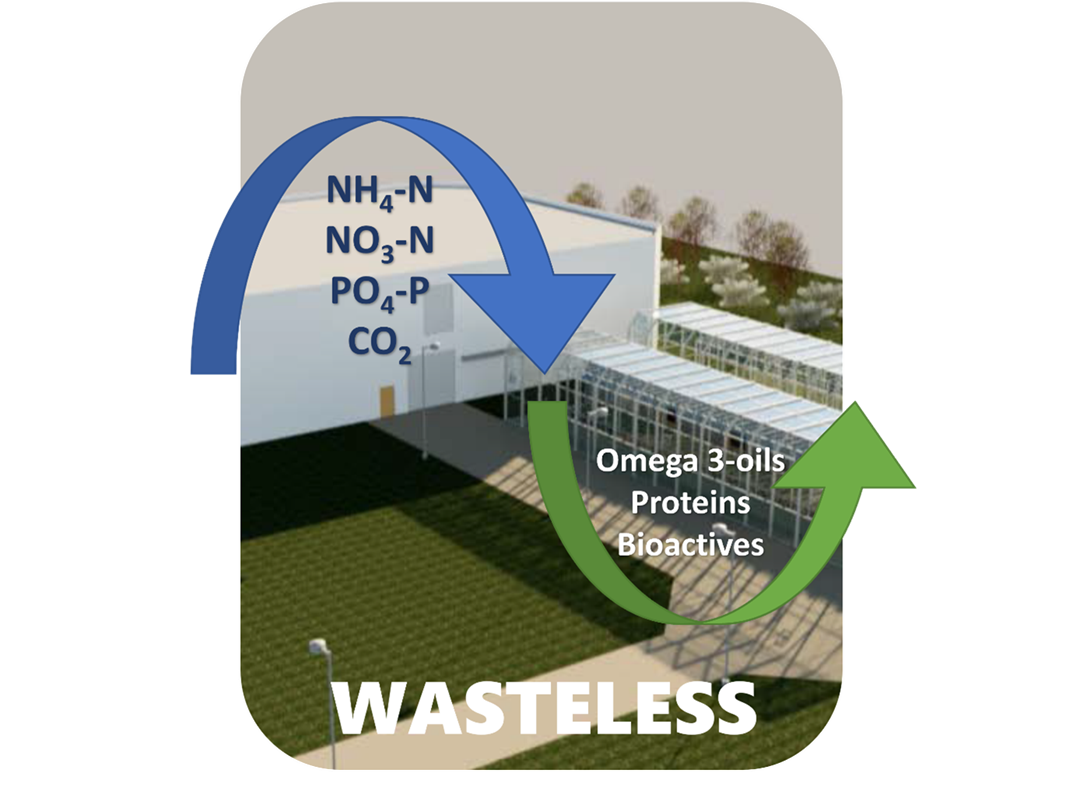Moreover, existing aquaponics systems have large area footprints and production is mainly developed to grow terrestrial plants such as salad and herbs. The release from post-smolt RAS is saline and opens for production of organisms that tolerate brackish or seawater such as seaweeds or marine microorganisms.
In WASTELESS we want to introduce secondary water treatment in RAS using a space efficient reactor producing a biofilm. We suggest establishing multi-species biomass production and use known ecological principles to optimise nutrient removal and cleaning of the RAS water. The actors will probably be a mix of organisms (i.e., bacteria, cyanobacteria, algae and ciliates), which have valuable properties in fish feed, and we will exploit the complementarity rather than fight the complexity. Furthermore, new ingredients for aquafeed can be produced from the N-rich RAS release by biorefining the produced biomass paste into clean fractions of proteins and fatty acids for example to replace less sustainable ingredients in aquafeed such as soy or fish oil.
WASTELESS in funded by The Research Council of Norway. The consortium consist of NOFITEC, NTNU and SINTEF Ocean.
